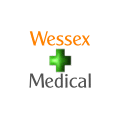
When to call 999
In a life-threatening emergency
Always call 999 if someone is seriously ill or injured, and their life is at risk.
Examples of medical emergencies include (but are not limited to):
- chest pain

- difficulty in breathing
- unconsciousness
- severe loss of blood
- severe burns or scalds
- choking
- fitting or concussion
- drowning
- severe allergic reactions.
When it’s not a life-threatening emergency
If it is not a life-threatening emergency and you, or the person you are with, do not need immediate medical attention, consider other options before you dial 999:
- Look after yourself or the patient at home. If you cannot stay at home, see if family or friends are able to help.
- Talk to your local pharmacist.
- Visit or call your GP.
- Call NHS 111.
- Visit the NHS Choices website.
- Make your own way to your local A&E department, walk-in centre, minor injuries unit or urgent care centre. (Arriving in an ambulance does not necessarily mean you will be treated more quickly.)
Choose the best treatment for your needs – choose well. It allows us to make sure that we are able to help the people who need us the most.
Not sure where your nearest health services are? Visit www.nhs.uk.
If you are nearing the end of your pregnancy, the London Ambulance Service have put together some advice if you are due to give birth.
With thanks to the London Ambulance Service